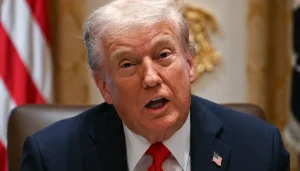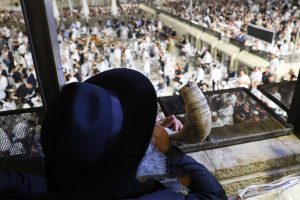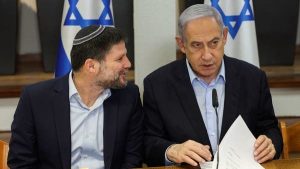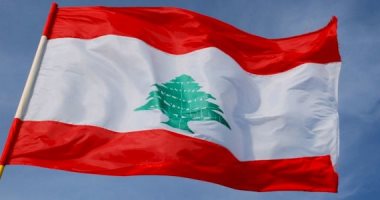Intensive diplomatic efforts are underway to unify the Lebanese stance and factions regarding the “arms control” plan approved by the Cabinet last week, ahead of the upcoming visit of the US envoy to Lebanon, Tom Barrack, to Beirut. In this context, intensive meetings will be held in the coming days between Lebanese President Joseph Aoun, Prime Minister Nawaf Salam, and Parliament Speaker Nabih Berri to reconcile views and reach an agreement before Barrack’s arrival. Meanwhile, the official Lebanese government faces rejection from Hezbollah, and the scene becomes more confused with positions supporting Hezbollah; Tehran, through the head of the Iranian Supreme National Security Council Ali Larijani who visited Beirut on Wednesday, sent several messages broadly supporting Hezbollah’s stance.
The Iranian official’s visit comes at a critical time as Lebanon and the region await the plan assigned by the Cabinet to the Lebanese Army leadership regarding the implementation of “exclusive arms control” and Hezbollah’s disarmament. Lebanon’s response to Tehran’s messages was decisive; President Joseph Aoun affirmed his country’s rejection of interference in its internal affairs, emphasizing that there are no exceptions in carrying arms. He added that the Lebanese people are represented by constitutional institutions that safeguard their supreme interests and those of the state. Lebanon seeks to achieve its interests and rejects any interference in its internal affairs from any party, aiming for security and stability for all Lebanese.
Aoun clarified that Lebanon and its armed forces are responsible for the security of all Lebanese without exception, noting that any challenges from the Israeli enemy or others are challenges for all Lebanese, not just one faction, and that unity among Lebanese is the most important weapon to face them. He stated that Lebanon wishes to cooperate with Iran within the limits of sovereignty and friendship based on mutual respect, noting that the friendship between Lebanon and Iran should not be through one sect or one Lebanese component but with all Lebanese. He stressed that Lebanon is the final homeland for all its sons, Christians or Muslims, and that the Lebanese state is responsible through its constitutional and security institutions for protecting all Lebanese components.
In this context, Lebanese Prime Minister Nawaf Salam expressed his country’s rejection of recent statements by some Iranian officials, particularly Foreign Minister Abbas Araghchi, Ali Akbar Velayati, and Brigadier General Mesgari, pointing out that these positions, which included direct criticism of Lebanese decisions taken by constitutional authorities, especially those carrying explicit threats, constitute a blatant breach of diplomatic principles and a violation of the principle of mutual respect for sovereignty, which is a cornerstone of any sound bilateral relationship and a fundamental basis in international relations and law, and is non-negotiable.
Salam said, “Neither I nor any Lebanese official allow ourselves to interfere in Iranian internal affairs, such as supporting one faction over another or opposing sovereign Iranian decisions; accordingly, Lebanon will not accept any form of interference in its internal affairs and looks forward to the Iranian side’s clear and explicit commitment to these rules.” He added that “Lebanese government decisions are not subject to discussion in any other country; the center of Lebanese decision-making is the Cabinet, and Lebanon’s decisions are made solely by the Lebanese, who do not accept guardianship or dictation from anyone.” He clarified that the issue of arms exclusivity in the hands of legitimate authorities alone is a decision made by the Lebanese since the approval of the Taif Agreement in 1989, reaffirmed in the current government’s ministerial statement and confirmed by the President in his oath before the Parliament.
The internal Lebanese scene coincides with an external scene where US envoy Tom Barrack holds meetings in Paris before his visit to Beirut and meets with the UN official responsible for the Lebanese file, Morgan Ortagus. Hezbollah seeks to buy time to obstruct the government’s decision to disarm it, and the party is concerned about being politically sidelined by disarmament. Hezbollah Secretary-General Sheikh Naim Qassem renewed his rejection of the arms control plan and thanked Iran for its continuous support for Lebanon and its resistance against the “enemy” Israel, according to party-affiliated media. The “Loyalty to the Resistance” bloc, represented by MP Mohammad Raad, reiterated Hezbollah’s rejection of the government’s decision to monopolize arms in the hands of the state, attacking the decision as dangerous and ill-considered, adopted under external pressures and without national consensus, which deprived it of its sovereign and charter character.
He warned that the decision exposes sovereignty and opens the door for the enemy to threaten internal stability. He affirmed that the resistance’s arms have been a protective factor for Lebanon since 1982 and have achieved major accomplishments in liberation and deterrence, stressing that doubting its effectiveness is falsifying reality.
He said, “Surrendering the arms means surrendering honor, and it is a suicide we do not intend to commit.” He pointed out that the US and Israel are pressuring to implement the decision within a tight timetable because time does not favor them, considering that the goal of the decision is “to transfer the conflict from its Lebanese-Israeli nature to an internal Lebanese conflict.” He explained that the state with its own forces does not have full capability to face the enemy, despite its ability to impose its authority internally, noting that Israel’s decision regarding Gaza opens a new front of tensions.













Recommended for you
Talib Al-Rifai Chronicles Kuwaiti Art Heritage in "Doukhi.. Tasaseem Al-Saba"
Exhibition City Completes About 80% of Preparations for the Damascus International Fair Launch
Unified Admission Applications Start Tuesday with 640 Students to be Accepted in Medicine
Egypt Post: We Have Over 10 Million Customers in Savings Accounts and Offer Daily, Monthly, and Annual Returns
His Highness Sheikh Isa bin Salman bin Hamad Al Khalifa Receives the United States Ambassador to the Kingdom of Bahrain
Al-Jaghbeer: The Industrial Sector Leads Economic Growth